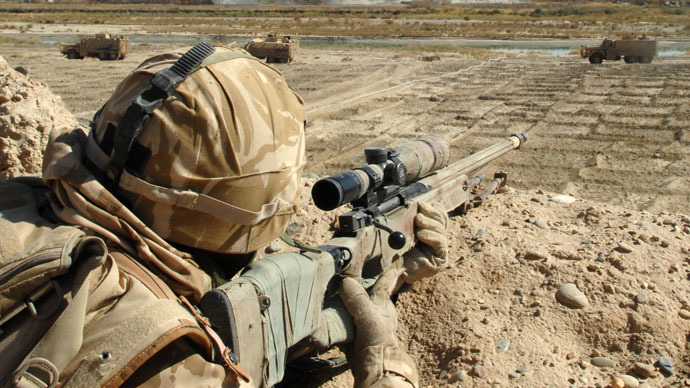‘Hung out to dry’: Traumatized sniper with farthest confirmed kill slams British Army

Credited with achieving the farthest confirmed sniper kill in history while serving in Afghanistan in 2009, former Household Cavalry soldier Craig Harrison has blasted the British Army for abandoning him without even a thank you.
In an interview with Australia’s ABC News, Harrison said he felt that upon discharge he had been “hung out to dry” by the British Army and that they “didn’t even say thank you.”
Harrison, who served for 23 years and deployed to the Balkans, Iraq and Afghanistan, has also spoken about the impact of Post-Traumatic Stress Disorder (PTSD).
READ MORE: 6 veterans per day seeking post-traumatic stress help – military charity
READ MORE: £288mn needed for Afghanistan veteran amputees – study
He related his experiences in the Balkans, telling the interviewer how he had been required to gather body parts.
“We had to put an arm to a body and match it,” he said.
Speaking about those he killed, he said: “I can smell them, I can see them. Every person who I have taken their life.”
In 2010, while still serving, Harrison had another run-in with the military which led to him sue the army over the apparently accidental release of his identity to the media.
It was feared his role as a sniper, whose main responsibility is to target important leaders in war zones such as Iraq and Afghanistan, could see him and his family targeted by UK-based Islamists.
Like those of Special Forces soldiers, sniper identities are normally kept secret for security reasons.
The issues surrounding aftercare of both mentally and physically wounded veterans have recently come to the fore.
In May, it was reported that basic aftercare for amputee veterans over the next 40 years could cost almost £300 million, while in March the armed forces charity Combat Stress reported that up to six veterans a day were seeking treatment for mental injuries including post-traumatic stress disorder (PTSD).
While the Ministry of Defence (MoD) has consistently argued that levels of PTSD in the military are the same as those among civilians, that claim is contested in a 2013 report by advocacy group Forces Watch.
Forces Watch said the MoD was obscuring figures by ignoring factors such as age and social class.
“Government statistics showing the average prevalence of mental health problems in the armed forces mask the much greater burden that certain groups shoulder, particularly young people from adverse backgrounds and those who have left the forces in the last decade.”












